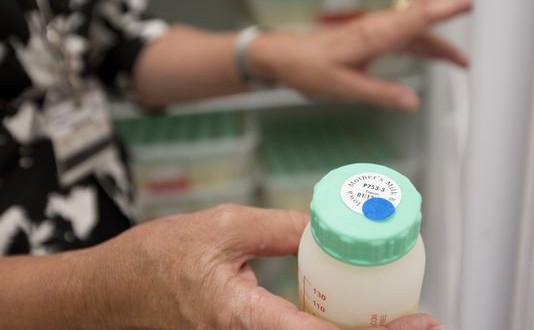Ever since the FDA warned women that buying breast milk online came with certain serious health and adulteration risks, research about the Internet breast-milk market has been backing up the warnings. Now, a new study published in the journal Pediatrics finds that 10% of breast milk samples bought online are mixed with cow’s milk.
The study found that 10 out of the 100 samples tested showed “a level of bovine DNA consistent with human milk mixed with at least 10 per cent fluid cow’s milk”, the Washington Post reported.
Giving cow’s milk to children can activate allergies or lactose intolerance.
[fwdevp preset_id=”8″ video_path=”BsITYPlWfpk”]The number of people who buy and sell breast milk online has jumped to about 55,000 from 13,000 people in 2013, according to the Centre for Biobehavioral Health at The Research Institute at Nationwide Children’s Hospital.
The study suggests that a recent effort to highlight the benefits of breastfeeding infants has caused women who can’t produce enough milk to look online for breast milk. This is risky, warns one of the authors of the study, as breast milk from strangers can be contaminated or – apparently – cut with cow’s milk.
The study found that about three-quarters of the online breast milk tested positive for harmful bacteria, including salmonella.
“It’s pretty clear, based on the findings of this and our prior study that looked at infectious disease risks, that obtaining milk for your babies that way is not a safe practice or recommended,” said Sarah Keim, lead researcher at the Nationwide Children’s Hospital.
Agencies/Canadajournal
 Canada Journal – News of the World Articles and videos to bring you the biggest Canadian news stories from across the country every day
Canada Journal – News of the World Articles and videos to bring you the biggest Canadian news stories from across the country every day



